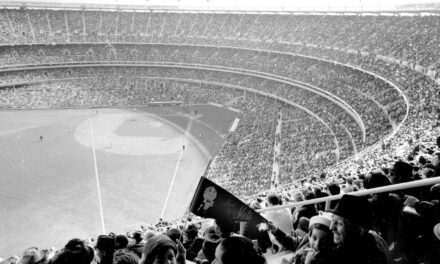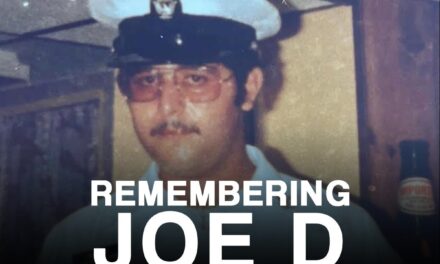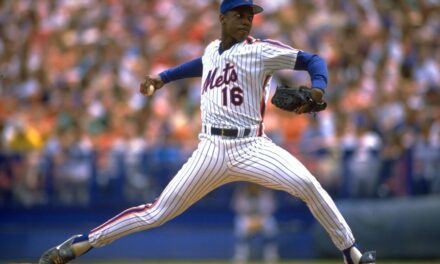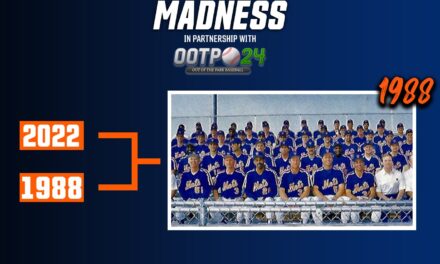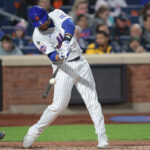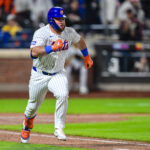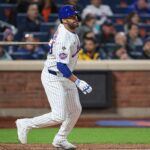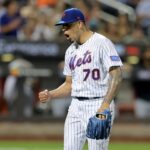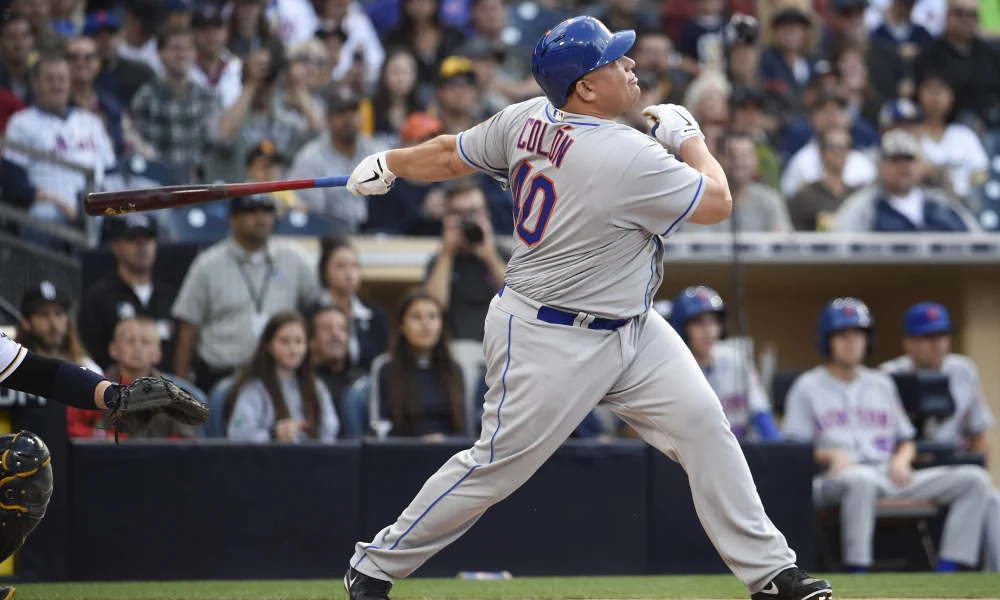
Bartolo Colón.
No matter how many baseball games you watch, each holds the chance of witnessing something you’ve never seen before.
A player’s first career homer. A pitcher hitting a homer. Both are rare — the latter now extremely rare. Countless pitchers have a home run on their résumé. But there’s one that stands alone.
Bartolo Colón was a terrible hitting pitcher even by hitting pitcher standards. Looking at his career numbers is like staring at the sun. In 299 career at-bats, he struck out 166 times. His slash line was .084/.092/.107. Simply put, he was not going to luck his way into any infield singles.
Statistics, though, don’t convey the ineptitude by which Colón had performed in the batter’s box. He gradually improved over time —making contact, hitting singles, and even hitting doubles. But nobody — literally nobody — expected what took place against James Shields.
Colón came to the plate in the second inning after Kevin Plawecki delivered a two-out double. The right-handed batter, who hadn’t recorded a hit yet on the season, took a swing at Shields’ 1-1 pitch. Contact was made. The ball had lift. It carried to left field. And what seemed like lighting striking in San Diego, the ball landed over the left-field wall.
The reaction — from the Mets’ dugout, from The 7 Line congregation in right field, from Gary Cohen and Ron Darling on television, from Howie Rose on radio — was joy mixed with utter disbelief. Shields, on the other hand, may never live it down.
Colón carried his bat up the first base line as he watched the ball fly, then proceeded on his maiden home run trot. Whether it was accidental or not, Colón took a — shall we say — a leisurely stroll around the basepaths (clocked in at 30.6 seconds).
Nobody would give him the, “act like you’ve been there before,” criticism. That gave his teammates enough time to vacate the premises. When Colón crossed the plate, the only ones left there to greet him were Plawecki, on-deck hitter Curtis Granderson, No. 2 hitter David Wright, and manager Terry Collins on the edge of the dugout.
Once the “silent treatment” was done, players joyously celebrated around their lovable pitcher.
“I don’t even know how to explain it,” said Colón who began his career 19 years prior to the homer. “Once I hit it, I knew it was gone.” Spoken like a true power hitter.
Oh, and he was 17 days shy of his 43rd birthday, which made him the oldest major leaguer to hit the first home run of his career.
The Mets went on to win, 6-3. Colón pitched into the seventh inning and earned the victory, the 221st of his career and the third of 15 that year — his last as a New York Met. In his three seasons with New York, Colón was a reliable part of the rotation. He never pitched fewer than 191 2/3 innings. Additionally, he was a respected veteran among teammates and a beloved figure among fans.
But, May 7, 2016 became the defining moment of his Mets’ career. With the advent of the universal designated hitter, it’s likely we’ll never see anything like it again.


